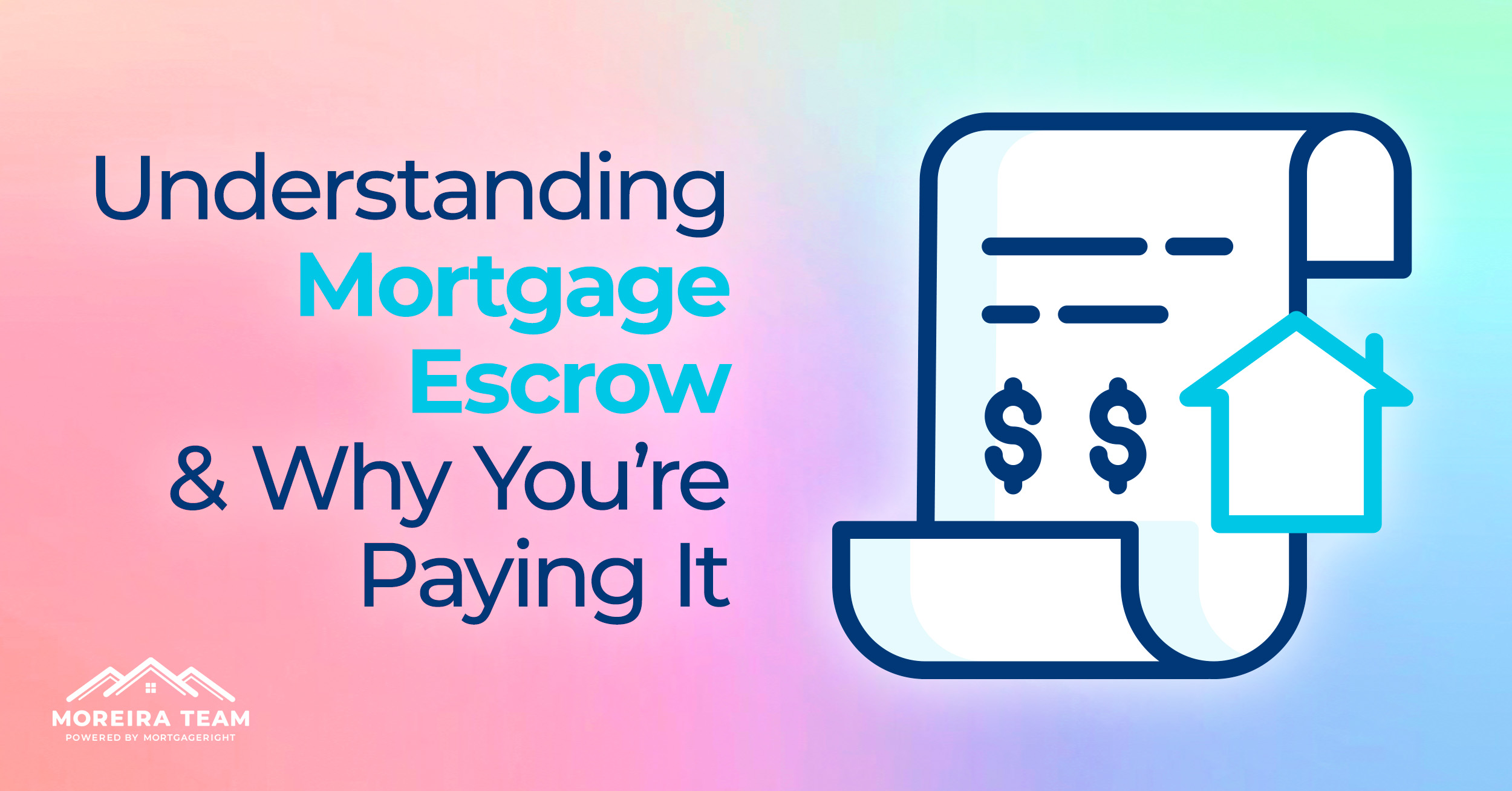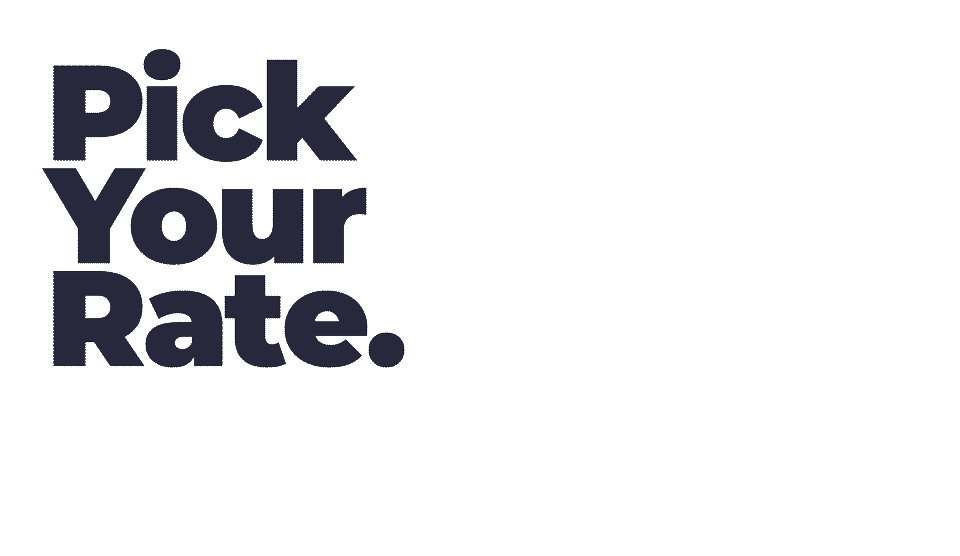
In this article
- Key Takeaways
- What is a Mortgage Escrow and How Does It Work?
- Benefits of a Mortgage Escrow
- Calculating Mortgage Escrow Amounts
- Circumstances That Could Impact Your Escrow
- Flood Designations
- A Dip in Property Value
- Annual Changes
- What Happens if I Refinance?
- The Option to Waive Escrow in Certain Circumstances
- Learn the Requirements to Buy a House From a Lender Who Has Your Back
The financial journey of buying a home doesn’t end once you close on the deal and move in. In fact, that’s just the beginning.
A mortgage loan is made up of several different components, such as the principal, interest rate, and loan fees. Within all this is a mortgage escrow account, and it tends to fly under the radar.
Whether you’re a first time home buyer or have owned in the past, you need a good grasp on the role of a mortgage escrow account. It’s directly related to your monthly payments and is often one of the requirements to buy a house. Knowing how it works will give you a better sense of where your money is going.

Key Takeaways
- ESCROW Definition: Mortgage escrow accounts hold funds for property taxes, home insurance, and PMI.
- Function: Monthly payments into the escrow cover these costs, managed by a third party.
- Benefits: Ensures timely payments, avoids lump sum surprises, and can offer lender discounts.
- Calculation: Escrow amounts are based on annual property taxes, home insurance, and PMI, divided by 12.
- Factors Affecting Escrow: Property value changes, tax rate hikes, and improvements can increase your escrow payments.
- Refinancing: Requires a new escrow account, original escrow funds will be refunded.
- Escrow Waiver: Possible with over 20% down, strong financial background, and high credit score.
- Preparation: Budget for unexpected increases and shop for best insurance and PMI rates.
- Need Help: The Moreira Team offers advice and guides you through the home-buying process.
What is a Mortgage Escrow and How Does It Work?
Although many people are unfamiliar with escrow, the concept is straightforward and the process very common. It’s an arrangement that involves holding money in a separate account managed by a third party, usually the mortgage servicer.
Once you purchase a home, an escrow account is set up by the lender. You’ll make monthly payments into this account, which go towards your property taxes, home insurance, and private mortgage insurance (PMI).
If you’re a first time home buyer applying for an FHA loan, one of the requirements to buy a house is setting up an escrow account. Your lender needs to be sure you’ll have the finances to cover taxes and insurance. However, other types of mortgage loans may not require this step.
It’s common for property taxes and home insurance to be bundled with your monthly mortgage payments. The mortgage servicer puts the required amount into your escrow account to cover these and then pays the principal and interest on your mortgage.
See How Easy it is to Get Your Custom Rate!Watch Now
Benefits of a Mortgage Escrow
On the surface, a mortgage escrow may seem like another worrisome expense associated with buying a home. But in truth, it’s a good thing. Paying into a mortgage escrow offers the following benefits:
- You’ll have peace of mind that your taxes and insurance payments are made on time.
- You won’t have a lump sum to pay at the end of the year.
- If your property tax fluctuates suddenly, your mortgage servicers will pay the correct amount.
- Some lenders offer discounts on your closing costs or interest if you have a mortgage escrow.
When a mortgage escrow is one of the requirements to buy a house, you’ll often need to start by paying a few month’s worth of property taxes and insurance. But it’s well worth the security.
See How Easy it is to Get Your Custom Rate!Watch Now
Calculating Mortgage Escrow Amounts
When you close on a home, your lender will determine the monthly amount you’ll need to contribute to your account. This is done by adding up your annual property taxes and home insurance costs and dividing them by 12. They’ll also consider PMI if you require it.
Paying into your account is automatic and not something you’ll need to think about. However, fluctuations in your property tax will raise your mortgage escrow requirements. While your mortgage servicer takes care of these increases, it’s still good to know when there’s a tax hike.
Factors that could cause your property taxes to rise include:
- An increase in property values in your city or neighborhood
- The approval of new schools, roads, or other infrastructure development
- Fluctuations in the real estate market
- An increase in local tax rates
- Economic growth, including new business development
Property taxes typically rise each year, so there’s a good chance your escrow will increase too. But you can take measures to control your escrow amount as you prepare to purchase a house. Shopping around for the best home insurance rates is one way. You should also work to get a good rate on your PMI if you need it. An experienced mortgage lender should be able to help you with this.
Circumstances That Could Impact Your Escrow
One of your personal requirements to buy a house should be preparing for the unexpected. There’s always a chance something could cause your monthly costs to fluctuate. This is true with your mortgage escrow account. Several situations may arise that could increase the amount you have to pay.
See How Easy it is to Get Your Custom Rate!Watch Now
Flood Designations
Your escrow will increase if your home wasn’t in a flood zone when you bought it but is then put into one. This is due to new flood insurance requirements.
On the other hand, if your home is suddenly moved from a high to low-risk flood zone, your insurance may decrease. This could lower your escrow requirement.
A Dip in Property Value
Major damage to your home that requires renovations can result in a lower home value. This could also happen if you neglect necessary maintenance and upkeep.
In these instances, changes to your home’s property value and insurance premiums can cause a fluctuation in your escrow.
Annual Changes
Many lenders analyze their mortgage escrow accounts to ensure borrowers have enough to cover the cost of property taxes, home insurance, and PMI. Sometimes this leads to necessary adjustments to your monthly requirements. For example, you can expect an increase if you have insufficient funds in your account.
What Happens if I Refinance?
One common misconception about a mortgage escrow account is that it can be transferred during a refinance. This isn’t the case.
Refinancing your home is a great way to take advantage of lower interest rates and better loan terms, or to leverage your equity and borrow much-needed cash. You’ll have a new mortgage loan, which means you’ll need a new escrow account. But what happens to your current one?
When you refinance, your mortgage servicer will close the escrow account tied to your original loan. Any remaining funds will be sent to you, but this typically takes several weeks.
The lender who handles your refinance will set up a new mortgage escrow account. This is where things can get a bit tricky. You’ll likely need to fund the account to cover upcoming property tax and home insurance payments. It’s important to budget for the extra cost, especially if you’re not getting a large sum back from your old escrow account.
If you’re working with the same lender to refinance, ask them about using any remaining money from the escrow account tied to your original loan to fund the new account. They may be able to transfer funds in certain situations.
The Option to Waive Escrow in Certain Circumstances
A mortgage escrow account is one of the requirements to buy a house for many people, especially first time home buyers. This can be frustrating if you prefer to manage your own finances and take care of the property tax and insurance payments yourself.
But waiving a mortgage escrow isn’t impossible. You may be able to do it if you meet the following criteria:
- You’re putting over 20% down on a conventional loan.
- You have a strong financial background with no history of missed payments.
- You have a high credit score.
Keep in mind that every lender is different. Some simply won’t allow you to waive the mortgage escrow account when buying a new home. It’s also harder to waive your escrow if you’re applying for government-backed loans like USDA or VA mortgages.
See How Easy it is to Get Your Custom Rate!Watch Now
Learn the Requirements to Buy a House From a Lender Who Has Your Back
Setting yourself up for a secure financial future is key when buying a home. Finding the right loan and paying into a mortgage escrow are two ways you can maintain peace of mind and ensure your costs are covered each month.
The Moreira Team will give you sound advice and guide you through the home buying journey with transparency and personalized service.
Get pre-approved today.

